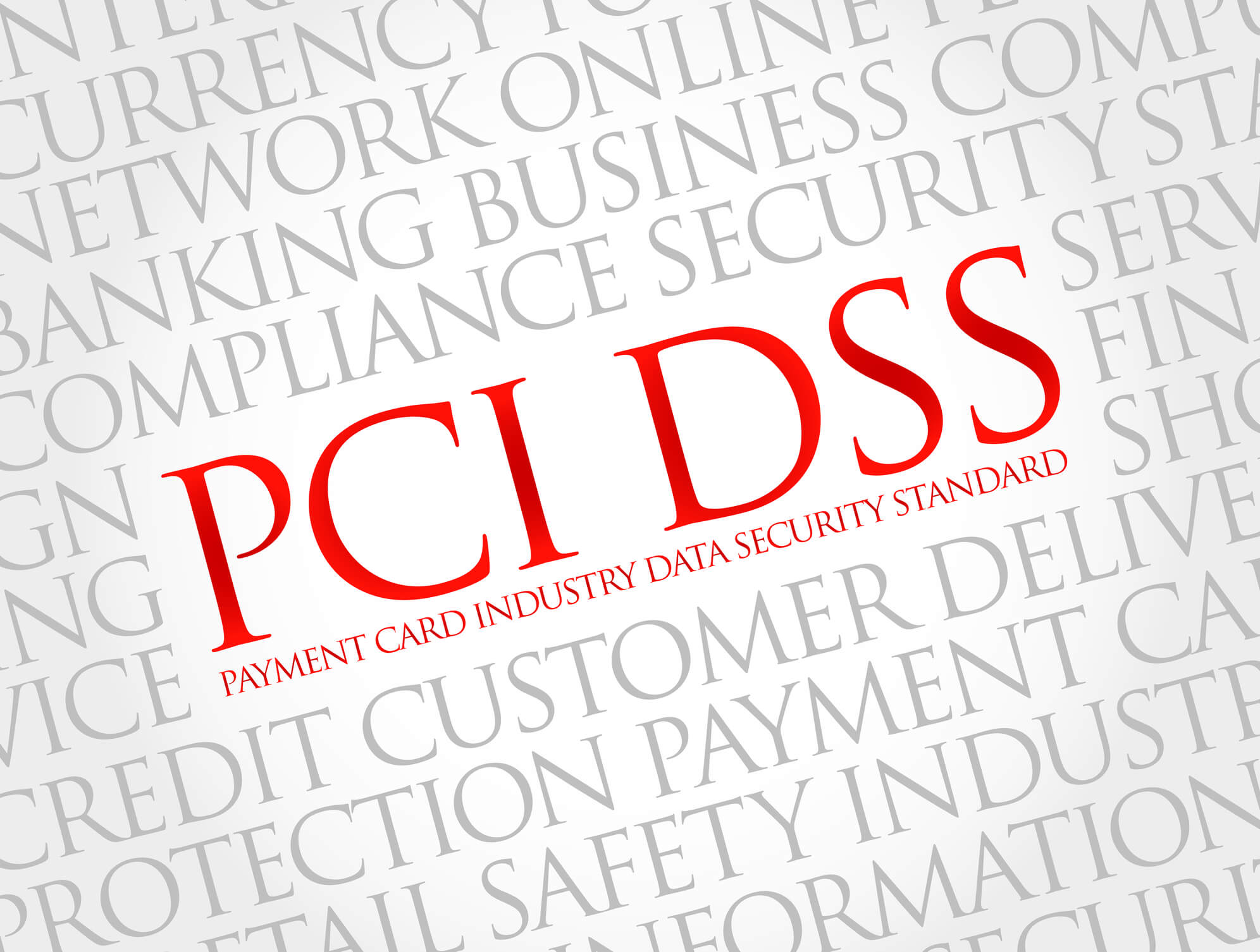
By alphacardprocess October 1, 2024
In today’s digital age, the security of sensitive information, such as credit card data, is of utmost importance. For contractors who handle payment transactions, ensuring PCI compliance is not only a legal requirement but also a crucial step in protecting their customers’ financial information.
This comprehensive article will delve into the world of PCI compliance for contractors, covering its importance, key requirements, security measures, best practices, training and education, common challenges, steps to achieve and maintain compliance, frequently asked questions, and a concluding summary.
Understanding the Importance of PCI Compliance
PCI compliance, which stands for Payment Card Industry Data Security Standard, is a set of security standards established by major credit card companies to protect cardholder data. Compliance with these standards is mandatory for any organization that processes, stores, or transmits credit card information. Contractors, who often handle payment transactions for their services, must adhere to these standards to ensure the security and trust of their customers.
The importance of PCI compliance cannot be overstated. Non-compliance can result in severe consequences, including hefty fines, legal liabilities, loss of reputation, and even the suspension of the ability to process credit card payments. Moreover, a data breach can lead to financial losses, customer attrition, and damage to the overall business operations. Therefore, contractors must prioritize PCI compliance to safeguard their customers’ sensitive information and maintain the integrity of their business.
Key Requirements for PCI Compliance
To achieve PCI compliance, contractors must meet a set of key requirements outlined by the PCI Security Standards Council. These requirements are divided into six categories, known as the PCI DSS (Data Security Standard) requirements. Let’s explore each requirement in detail:
- Build and Maintain a Secure Network: Contractors must install and maintain a firewall configuration to protect cardholder data. They should also change default passwords and security parameters to prevent unauthorized access.
- Protect Cardholder Data: Contractors must encrypt cardholder data during transmission and storage. This includes implementing secure protocols, such as SSL/TLS, and using strong encryption algorithms to protect sensitive information.
- Maintain a Vulnerability Management Program: Contractors must regularly update and patch their systems to address any vulnerabilities. They should also conduct regular vulnerability scans and penetration tests to identify and mitigate potential security risks.
- Implement Strong Access Control Measures: Contractors must restrict access to cardholder data by implementing unique user IDs, strong passwords, and two-factor authentication. They should also assign access privileges based on job responsibilities and regularly review user access to ensure compliance.
- Regularly Monitor and Test Networks: Contractors must monitor their networks and systems for any suspicious activities or unauthorized access attempts. They should also implement intrusion detection and prevention systems to detect and respond to potential security breaches.
- Maintain an Information Security Policy: Contractors must develop and maintain a comprehensive information security policy that addresses all aspects of PCI compliance. This policy should be communicated to all employees and contractors, and regular training and awareness programs should be conducted to ensure adherence.
Implementing Security Measures for PCI Compliance

To achieve PCI compliance, contractors must implement various security measures to protect cardholder data. These measures include:
- Encryption: Contractors should encrypt cardholder data during transmission and storage to prevent unauthorized access. Encryption ensures that even if the data is intercepted, it remains unreadable and unusable.
- Tokenization: Tokenization is the process of replacing sensitive data with a unique identifier, known as a token. Contractors can use tokenization to store and transmit cardholder data securely without exposing the actual information.
- Secure Payment Processing: Contractors should use secure payment processing solutions that comply with PCI standards. These solutions ensure that cardholder data is securely transmitted to the payment gateway without being stored on the contractor’s systems.
- Secure Network Infrastructure: Contractors must establish a secure network infrastructure by implementing firewalls, intrusion detection systems, and other security measures. Regular monitoring and testing of the network infrastructure are essential to identify and address any vulnerabilities.
- Regular Software Updates and Patching: Contractors should regularly update their software and apply security patches to address any known vulnerabilities. Outdated software can be a prime target for hackers, so staying up-to-date is crucial.
Best Practices for Protecting Cardholder Data

In addition to meeting the key requirements and implementing security measures, contractors should follow best practices to further protect cardholder data. These best practices include:
- Limit Data Storage: Contractors should only store cardholder data that is necessary for business operations. Unnecessary data should be securely deleted to minimize the risk of a data breach.
- Implement Strong Password Policies: Contractors should enforce strong password policies that require employees to use complex passwords and change them regularly. Multi-factor authentication should also be implemented for added security.
- Regularly Train Employees: Contractors should provide regular training and education to employees on PCI compliance and data security best practices. This ensures that employees are aware of their responsibilities and understand how to handle cardholder data securely.
- Conduct Regular Security Audits: Contractors should conduct regular security audits to identify any vulnerabilities or weaknesses in their systems. These audits can help identify areas for improvement and ensure ongoing compliance.
- Monitor Third-Party Vendors: Contractors should carefully vet and monitor any third-party vendors or service providers who handle cardholder data. It is essential to ensure that these vendors also adhere to PCI compliance standards to maintain the security of the entire payment ecosystem.
Training and Education for Contractors on PCI Compliance
To ensure effective implementation of PCI compliance, contractors must invest in training and education for their employees. This training should cover the following areas:
- Understanding PCI Compliance: Employees should be educated about the importance of PCI compliance, the potential consequences of non-compliance, and the key requirements they need to meet.
- Handling Cardholder Data: Employees should be trained on how to handle cardholder data securely, including encryption, tokenization, and secure payment processing practices.
- Security Best Practices: Employees should be educated on security best practices, such as strong password policies, regular software updates, and secure network infrastructure.
- Incident Response and Reporting: Employees should be trained on how to respond to security incidents and report any potential breaches promptly. This includes understanding the steps to take in case of a data breach and the importance of timely reporting.
- Ongoing Training and Awareness: Training should be an ongoing process, with regular refreshers and updates to keep employees informed about the latest security threats and best practices.
Common Challenges Faced by Contractors in Achieving PCI Compliance
Achieving and maintaining PCI compliance can be challenging for contractors, especially those who are new to the requirements and security measures. Some common challenges faced by contractors include:
- Lack of Awareness: Many contractors may not be fully aware of the PCI compliance requirements and the steps they need to take to achieve compliance. This lack of awareness can hinder their ability to implement the necessary security measures.
- Limited Resources: Contractors, especially small businesses, may have limited resources to invest in security infrastructure and training programs. This can make it challenging to meet the stringent requirements of PCI compliance.
- Complexity of Compliance: The PCI compliance standards can be complex and technical, requiring contractors to have a deep understanding of security protocols and encryption algorithms. This complexity can be overwhelming for contractors without a dedicated IT team.
- Third-Party Vendor Compliance: Contractors often rely on third-party vendors or service providers for various aspects of their business operations. Ensuring that these vendors also comply with PCI standards can be a challenge, as contractors have limited control over their security practices.
- Keeping Up with Evolving Threats: The threat landscape is constantly evolving, with new security vulnerabilities and attack vectors emerging regularly. Contractors must stay updated on the latest threats and security measures to ensure ongoing compliance.
Steps to Achieve and Maintain PCI Compliance
To achieve and maintain PCI compliance, contractors should follow a systematic approach that includes the following steps:
- Assess Current State: Contractors should conduct a thorough assessment of their current security infrastructure, processes, and policies to identify any gaps or areas for improvement. This assessment will serve as a baseline for implementing necessary changes.
- Develop a Compliance Plan: Based on the assessment, contractors should develop a comprehensive compliance plan that outlines the specific steps they need to take to achieve compliance. This plan should include timelines, responsibilities, and resource allocation.
- Implement Security Measures: Contractors should implement the necessary security measures outlined in the compliance plan. This may include upgrading network infrastructure, implementing encryption and tokenization, and establishing secure payment processing systems.
- Train Employees: Contractors should provide training and education to employees on PCI compliance and data security best practices. This training should be ongoing to ensure that employees stay updated on the latest threats and compliance requirements.
- Conduct Regular Audits: Contractors should conduct regular security audits to assess their compliance status and identify any vulnerabilities or weaknesses. These audits should be conducted by qualified professionals or third-party auditors.
- Monitor and Update: Contractors should continuously monitor their systems and networks for any suspicious activities or potential security breaches. They should also stay updated on the latest security threats and update their security measures accordingly.
- Engage with Third-Party Vendors: Contractors should engage with their third-party vendors or service providers to ensure that they also comply with PCI standards. This may involve reviewing contracts, conducting audits, and establishing clear expectations for security practices.
Frequently Asked Questions
Q.1: What is PCI compliance?
PCI compliance refers to the adherence to a set of security standards established by major credit card companies to protect cardholder data. It is mandatory for any organization that processes, stores, or transmits credit card information.
Q.2: What are the consequences of non-compliance?
Non-compliance with PCI standards can result in hefty fines, legal liabilities, loss of reputation, and even the suspension of the ability to process credit card payments. A data breach can lead to financial losses, customer attrition, and damage to the overall business operations.
Q.3: What are the key requirements for PCI compliance?
The key requirements for PCI compliance include building and maintaining a secure network, protecting cardholder data through encryption, maintaining a vulnerability management program, implementing strong access control measures, regularly monitoring and testing networks, and maintaining an information security policy.
Q.4: How can contractors protect cardholder data?
Contractors can protect cardholder data by implementing security measures such as encryption, tokenization, secure payment processing, secure network infrastructure, and regular software updates and patching.
Q.5: What are some best practices for protecting cardholder data?
Best practices for protecting cardholder data include limiting data storage, implementing strong password policies, regularly training employees, conducting security audits, and monitoring third-party vendors.
Conclusion
PCI compliance is a critical aspect of conducting business for contractors who handle payment transactions. By understanding the importance of PCI compliance, meeting the key requirements, implementing security measures, following best practices, investing in training and education, and addressing common challenges, contractors can ensure the protection of cardholder data and maintain the trust of their customers.
Achieving and maintaining PCI compliance requires a systematic approach, regular monitoring, and staying updated on the evolving threat landscape. By prioritizing PCI compliance, contractors can safeguard their customers’ sensitive information and mitigate the risks associated with non-compliance.